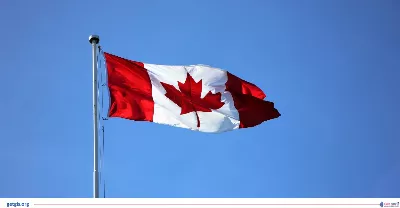Canada's Immigration Talks; Four Provinces Hold PNP Draws
Updated On
-
Copy link
-
-
Minister Marc Miller gathered with provincial and territorial immigration ministers in Toronto for the biannual FMRI meeting for Canada’s Immigration Policies.
Yesterday, Immigration Minister Marc Miller convened with provincial and territorial immigration ministers in Toronto for their semiannual meeting, forming the Federation of Ministers Responsible for Immigration (FMRI). The FMRI aims to enhance Canada's immigration policies and programs, striving for flexibility, timeliness, and effectiveness.
Focus on Immigration Levels Plan 2024-2026
During the meeting, Minister Miller highlighted the Immigration Levels Plan 2024-2026, emphasizing its potential to foster sustainable population growth and provide vital support to healthcare and construction sectors.
Key Discussion Points
Federal and provincial immigration ministers identified critical areas for collaboration, including reducing duplication in immigration programs, supporting Francophone immigration, and improving the economic immigration system's responsiveness and client-centeredness.
1. Addressing Challenges and Enhancing Services
The discussion extended to addressing housing, infrastructure, and social service pressures while streamlining foreign credential recognition and expanding settlement services eligibility for asylum claimants and temporary residents on a path to permanent residence.
2. FMRI's Priorities and Progress: Multi-Year Plans
The FMRI's previous meeting in Halifax prioritized endorsing multi-year plans for the Provincial Nominee Program (PNP), allowing provinces to receive immigration allocations up to three years in advance, benefiting both newcomers and existing residents.
3. Continued Focus on Programs and Pilots
The Halifax meeting also emphasized the improvement of international education recognition, quicker integration of professionals in high-demand sectors, and the expansion of immigration programs like the Atlantic Immigration Program and the Rural and Northern Immigration Pilot Program.
4. Alignment with Federal Strategies
Provincial priorities align closely with the federal government's newly released strategy, emphasizing consultations with provincial partners for sustainable immigration levels and economic strengthening.
5. Shared Responsibility and PNPs
IRCC collaborates closely with provinces, given that immigration is a shared responsibility under Canada's Constitution. Provinces nominate economic candidates, but IRCC makes the final decision on permanent residency.
6. Recent Provincial Draws
The FMRI meeting followed recent provincial draws: British Columbia, Manitoba, Prince Edward Island, and Alberta, all inviting candidates through their respective PNP streams, showcasing the diverse criteria and streams employed by each province.
Embarking on the journey to immigrate with ����ÿ�մ���!
As Canada opens up avenues for immigration, individuals seeking a new beginning in this country should navigate the evolving immigration landscape with expert guidance. ����ÿ�մ���, a leading immigration consultancy, stands ready as the ideal partner for those aspiring to make Canada their new home.
With in-depth expertise and steadfast support, ����ÿ�մ��� is your trusted advisor, guiding you through the shifting immigration processes and turning your dream of settling in Canada into a reality. So, why just dream? Let's make it happen together. Schedule a Free Consultation Today!
FAQs
Q1: What is the Processing Time for a PNP (Skills Immigration)?
The processing time for a PNP is given below. Please note that these times are approximate and may vary based on application volumes and specific circumstances.
- Application Stage: Approximately 3 months
- Post-Nomination Request: Around 3 months
- Request for Review: Approximately 6 months
Q2: Is an IELTS test necessary for PNPs?
A 6-band IELTS score is typically needed for Canada PR, making applicants eligible for PNPs. It's compulsory for immigrants aspiring to relocate to Canada. The Canada PR Visa is among the top pathways for entering Canada.
Q3: What benefits do multi-year plans for the Provincial Nominee Program (PNP) offer?
Multi-year plans enable provinces to receive immigration allocations up to three years in advance, aiding in better preparation for newcomer settlement services and infrastructure needs.
Q4: How long will the PNP processing take in Canada in 2023?
The typical duration for evaluating applications ranges from 9 to 12 months. Yet, properly completed applications tend to undergo a quicker assessment process.
Q5: Will a PNP nomination guarantee a Permanent Residency (PR)?
Regrettably, receiving a nomination from a province or territory does not ensure automatic approval for permanent residency in Canada. This is because meeting statutory requirements for applying for permanent residency is also necessary.
Useful Links:




